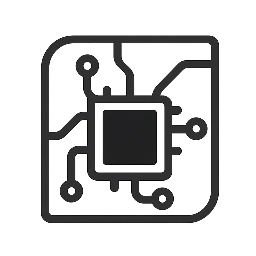Choosing the right CRM software can feel like navigating a jungle — there are so many options, each promising to be the best fit for your business. But don’t worry, you’re not alone in this. Let’s break down everything you need to know to pick a CRM that actually works for your unique business needs.
Understanding CRM Software
What is CRM Software?
Customer Relationship Management (CRM) software is a tool designed to help businesses manage interactions with current and potential customers. Imagine having a super-organized digital Rolodex that not only stores contacts but also tracks communications, sales, and marketing efforts—all in one place.
Why Do Businesses Need CRM?
In today’s competitive market, building strong customer relationships is key to survival and growth. CRM helps companies streamline processes, improve customer satisfaction, and ultimately increase revenue. Whether you’re a startup or a large corporation, a good CRM system can keep your sales and marketing on point.
Key Benefits of Using CRM Software
Improved Customer Relationships
A CRM system ensures you never lose track of a customer interaction. It helps personalize communication, making your customers feel valued and understood. Think of it as your business’s memory bank for every customer detail.
Enhanced Sales and Marketing Efficiency
By automating repetitive tasks and providing data-driven insights, CRM software boosts the productivity of your sales and marketing teams. This means your teams spend more time closing deals and less time juggling spreadsheets.
Identifying Your Business Needs
Assessing Current Pain Points
Before jumping on a CRM, ask yourself: What problems do I want this system to solve? Is it disorganized contact data? Lost sales leads? Poor customer follow-up? Pinpointing these issues will guide your choice.
Defining Your CRM Goals
Are you aiming to boost sales, improve customer service, or automate marketing? Setting clear goals helps you choose features that align with your business objectives.
Types of CRM Software
Operational CRM
Focuses on streamlining sales, marketing, and service automation to improve customer-facing activities.
Analytical CRM
Centers on analyzing customer data to improve decision-making and identify sales trends.
Collaborative CRM
Facilitates sharing information across departments to enhance overall customer experience.
Features to Look for in CRM Software
Contact Management
The backbone of any CRM—organizing all your customer info in one place with easy search and update options.
Sales Automation
Automates sales tasks like follow-ups and lead tracking to speed up the sales cycle.
Marketing Automation
Manages email campaigns, social media posts, and customer segmentation for targeted marketing.
Reporting and Analytics
Offers insights into sales performance, customer behavior, and campaign effectiveness.
Mobile Access
Lets your team access CRM data on the go, essential for remote or field salespeople.
Integration Capabilities
Integrating with Existing Tools
Your CRM should play nicely with your email, calendar, accounting, and other business tools to avoid double work.
API and Third-Party Support
Look for CRMs that support API access so you can connect it with specialized apps you already use.
Ease of Use and User Experience
User Interface Importance
A clean, intuitive interface means your team will actually use the software rather than avoiding it out of frustration.
Training and Support
Check if the vendor offers solid onboarding and ongoing support to help your team master the tool.
Pricing and Budget Considerations
Subscription Models
Most CRMs offer monthly or annual subscriptions. Choose a plan that fits your budget without sacrificing essential features.
Hidden Costs to Watch Out For
Be wary of extra fees for user licenses, add-ons, or customer support beyond basic packages.
Cloud-Based vs On-Premise CRM
Pros and Cons of Cloud-Based CRM
Cloud CRMs are accessible anywhere, require less IT maintenance, and scale easily. However, you rely on internet connectivity and vendor uptime.
Pros and Cons of On-Premise CRM
On-premise CRMs offer greater control and customization but involve higher upfront costs and maintenance responsibilities.
Scalability and Customization
Growing With Your Business
Choose a CRM that can grow with you, supporting more users, contacts, and advanced features as your company expands.
Customizable Features
Look for options to tailor workflows, fields, and dashboards to match your unique processes.
Data Security and Compliance
Importance of Data Protection
Your CRM holds sensitive customer data. Ensure it uses strong encryption and regular backups to protect against breaches.
Compliance with Regulations
Check if the CRM complies with regulations like GDPR or CCPA to avoid costly legal issues.
Vendor Reputation and Support
Researching Vendor History
Look for reviews, case studies, and user testimonials to assess a vendor’s reliability and track record.
Customer Service Quality
Responsive support can save you hours of downtime. Test their customer service responsiveness during your trial.
Trial Periods and Demos
Testing the Software Before Buying
Always take advantage of free trials to explore the software hands-on before committing.
What to Look for During Demos
Focus on ease of navigation, feature relevance, and how well it integrates with your current systems.
Implementation Time and Process
Timeline Expectations
Implementation can range from a few days to several months depending on complexity. Plan accordingly.
Change Management
Prepare your team for change with proper training and communication to ensure smooth adoption.
Making the Final Decision
Gathering Stakeholder Feedback
Involve your sales, marketing, IT, and customer service teams in the decision to cover all bases.
Aligning CRM Choice with Business Strategy
Ensure your CRM supports your broader business goals and growth plans.
Conclusion
Choosing the right CRM software is like picking a partner for your business journey — it needs to fit perfectly and grow with you. By understanding your needs, exploring features, and testing options thoroughly, you can find a CRM that not only streamlines your operations but also helps build lasting customer relationships. Take your time, involve your team, and invest wisely — the right CRM can transform your business.
FAQs
Q1: What is the best CRM software for small businesses?
Some popular small business CRMs include HubSpot CRM, Zoho CRM, and Pipedrive due to their ease of use and affordable pricing.
Q2: Can CRM software improve customer retention?
Absolutely! By tracking customer interactions and enabling personalized communication, CRMs help businesses keep customers happy and loyal.
Q3: How long does CRM implementation usually take?
Implementation can take anywhere from a week to several months depending on the system complexity and company size.
Q4: Is cloud CRM more secure than on-premise CRM?
Cloud CRMs often have robust security measures managed by the vendor, but on-premise CRMs offer more control if your IT team is strong.
Q5: Can CRM software integrate with social media platforms?
Yes, many CRM systems offer integrations with Facebook, Twitter, LinkedIn, and others to streamline social media marketing.

